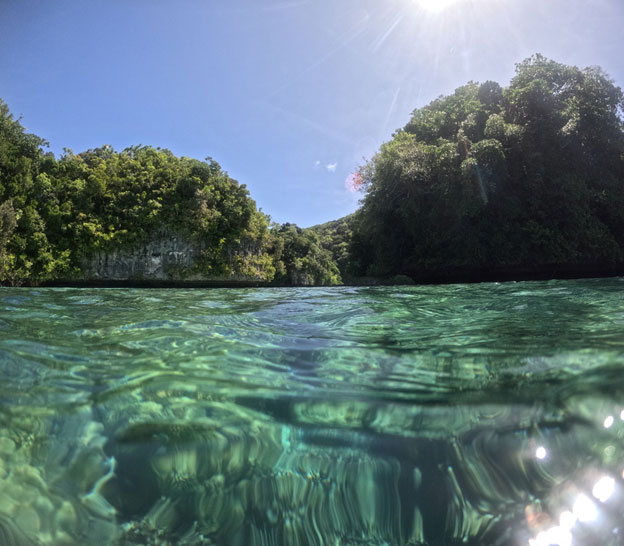WASHINGTON, USA, October 27 (IPS) – As biodiversity loss including ocean degradation, pollution and climate change threaten our planet, islands, and particularly global small island nations, often don’t get the spotlight they deserve. Often labeled as vulnerable, the world’s small island nations are in fact powerful beacons of resilience.
Their urgent challenges are sparking bold innovation, deep collaboration, and some of the most remarkable ecological recoveries on Earth. That’s why we are calling for the United Nations to establish a Decade of Island Resilience for 2030-2040.
Stories of success on islands are as abundant as the islands themselves. Although small islands are ubiquitous, global small island nations who are independent sovereign states span the global oceans. In the Pacific and Caribbean region, independent small island nations continue to advocate to the international community for equity in recognizing their special circumstances as a case to increase financing and resources to combat the triple planetary crisis of biodiversity loss, climate change and pollution.
These islands, often highly indebted, with small economies and remote geographies, are primarily dependent on their coastal assets to drive their main revenue generation – tourism and the blue economy.
Several of these island nations have leveraged the power of collective effort and have initiated innovative approaches at the domestic and regional scale to conserve and preserve their biodiversity and cultural identities.

Efforts like the Unlocking Blue Pacific Prosperity inspired by the work of the Micronesia Challenge Initiative and the 30×30 OECS Transformation Program to advance progress towards the Global Biodiversity Framework are providing a new pathway to building island resilience.
Thanks to holistic conservation action, thousands of new native seedlings are now carpeting the forest floor and seabirds populations are surging on Bikar Atoll in the Republic of the Marshall Islands.
The people of Ulithi Atoll in Yap State are enjoying increased food security and access to essential resources after successful restoration brought Loosiep Island back from the brink of ecological collapse.
Restored island biodiversity, in particular coastal and marine ecosystems, have been proven to trap tens of millions of metric tons of carbon, grow corals four times faster, regenerate native vegetation thousands of times faster, and support orders of magnitude more fish biomass. Healthy and well managed biodiversity also increases the resilience of islands to combat climate change.
Although islands continue to endure the harsh and often devastating everyday challenges of being on the front lines of the triple planetary crisis of biodiversity loss, declining ocean health, and climate change, these stories show how islands are investing in their ability to fight back—driven by incredible optimism and their right to exist.
Because of their unique geography, islands are natural proving grounds for scalable conservation strategies, where science-based biodiversity restoration, ocean action, and climate resilience can be developed, perfected, and expanded globally driven by the needs to island communities. Their immense potential for impact means they deserve the world’s attention.
As representatives of global small island nations, conservation science, and community-led initiatives, we are united in support of the island led United Nations-sanctioned Decade of Island Resilience to help bring islands to the front of global priorities about climate resilience and the future of holistic restoration.
Island Conservation, an international NGO with more than 30 years of success working with island communities to restore their precious ecosystems, formally proposed this initiative in May of 2025 to help direct attention to the outsized role islands can play. And last month, the International Union for the Conservation of Nature adopted this call as an official Resolution.
The Global Islands Partnership (GLISPA)—a long-time convenor and internationally recognized island led platform will work in partnership with Island Conservation to transition this resolution into a platform for catalyzing island progress thorough its Island Biodiversity Coalition.
If established, the proposed Decade of Island Resilience would serve multiple vital functions: coordinating scientific research, mobilizing financial resources, amplifying indigenous and local voices, integrating traditional and local knowledge into implementation and scaling successful approaches, such as enhancing the delivery of adequate and consistent financing and ensuring the retention of domestic capacity in the implementation of solutions across the world’s islands.
And in doing so, it would amplify existing efforts that direct the world’s attention to islands—the globe’s nature-based solution for the delivery of high-impact resilience, restoration, and revitalization.
The timing is critical. We are in the last five years of the 2030 Agenda. As we implement the Sustainable Development Goals (SDGs), advance the UN’s Global Biodiversity Framework including the Antigua and Barbuda Agenda for SIDS, and recognize the special circumstances of small island developing states to drive ambition and action for a regenerative ocean future, and pursue the race to net zero emissions, global small islands are where we should look for integrated solutions.
A Decade of Island Resilience wouldn’t just benefit global small islands: it would help us develop environmental solutions for our entire planet. If we can succeed in a global small island context—where problems are contained and solutions tangible—we’ll have a blueprint for addressing our global environmental crisis.
A Decade of Island Resilience would create a global platform for ambitious partnerships to scale efforts globally between governments, scientific institutions, civil society, private sector innovators, and, most importantly, island communities.
The choice is clear: invest in island resilience now, or lose irreplaceable biodiversity, cultural heritage, and proven solutions to our most pressing global challenges. The world’s islands are ready to lead. Are we ready to support them?
Penny Becker, PhD., is CEO, Island Conservation; Honorable Ralph Regenvanu is Minister for Climate Change, Energy, Meteorology, Geohazards, Environment and Disaster Management for the Republic of Vanuatu; and Ambassador Safiya Sawney is Special Envoy and Ambassador for Climate Change, Government of Grenada and Board Chair for the Global Island Partnership
IPS UN Bureau
© Inter Press Service (20251027044512) — All Rights Reserved. Original source: Inter Press Service


